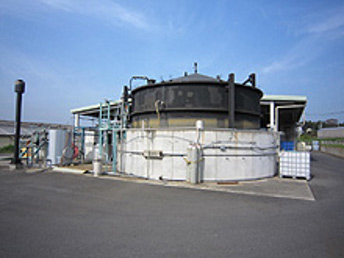- Waste management in Japan
- Circular economy in Japan
- Waste management in Asia
- Disaster waste management
Importance of Field Surveys in Analyzing Regional Recycling Effects
Regional recycling of resources and its analysis
Today, international trade makes products move globally, and after being consumed, they are disposed of as waste. Recycling the waste into resources and reusing them can be an effective measure for sustaining human activities for the future. The Japanese government has been implementing a policy initiative for building "Regional Recycling Zones" across the nation. The aim of Regional Recycling Zone is to promote recycling of each resource within its optimal range according to the unique characteristics of the target region. The regional recycling of resources is expected to generate various effects from economic, environmental and social aspects. Economic effects include the reduction of waste management cost, creation of employment and the development of related industries. Environmental effects include the reduction of waste incineration and landfilling, the reduction of consumption of natural resources and the reduction of environmental load. Social effects include enhanced relationships between the people in the region, and their increased attachment and pride for their communities. Overall, regional recycling is expected to revitalize the regions concerned. It is vital to analyze, identify and enhance its effects.
Role of field surveys in analyzing regional recycling effects
In analyzing the effects of regional recycling, detailed information is indispensable on specific characteristics of the target region, resources, recycling systems and technologies. While some information of the technologies and systems are available in existing publications and online resources, other information can be only collected through fact-finding field surveys. These data and information collected in the field are essential for more accurate analysis. For example, in the field, you may find that the implementation status of the regional recycling plan is not as originally planned, or that specific circumstances surrounding the stakeholders may be affecting its implementation. Field survey does not simply mean visiting the surveyed region. Certain procedures are required for obtaining prior approval from the local government and businesses concerned. Often, we can conduct questionnaire surveys and collect information only after many visits explaining the purpose of the surveys to gain understanding and trust of the stakeholders. Enhancing human relationships is therefore important for the field surveys as well.
Findings from our field surveys
There are some examples of unique findings from our field surveys in Japan. In the case of a recycling project in Katori City in Chiba Prefecture, agricultural biomass, such as livestock manure, is used for methane fermentation (see Fig. 1). The generated fermentation residue is utilized in farms as fertilizer. From our field survey, we found that the farms were leased to urban residents for providing agricultural experience, and that the project combined these activities with its recycling activities in a rural area.
In rural-urban fringe areas in Japan, woody biomass is widely used to produce thermal energy. Another field survey of Shiwa Town in Iwate Prefecture revealed that woody biomass was used not only for making wood pellets for home wood stoves, but also as a source of thermal energy at a large scale for public and private composite facilities, or as a significant portion of building materials for public facilities and schools.

In the case of Shibecha Town in Hokkaido, a program of composting the sewage sludge has been implemented in dairy farming areas. Our field survey revealed that the sludge was mixed with livestock manure, and that this mixing process had possibility of minimizing the effects of fluctuations in volume and quality of the sludge.
While existing literature do not necessarily provide updated information for every research field, we can certainly obtain, through field surveys, cross-sectional, more comprehensive and latest information.
Future course of field surveys
As regional recycling programs have been implemented nationwide, there are increasing needs for evaluating their effects in such a manner that reflects each region's reality. Therefore, the significance of field surveys is increasing even more. We need to accumulate knowledge and experience to develop methodologies of field surveys that suit specific circumstances of each region.


